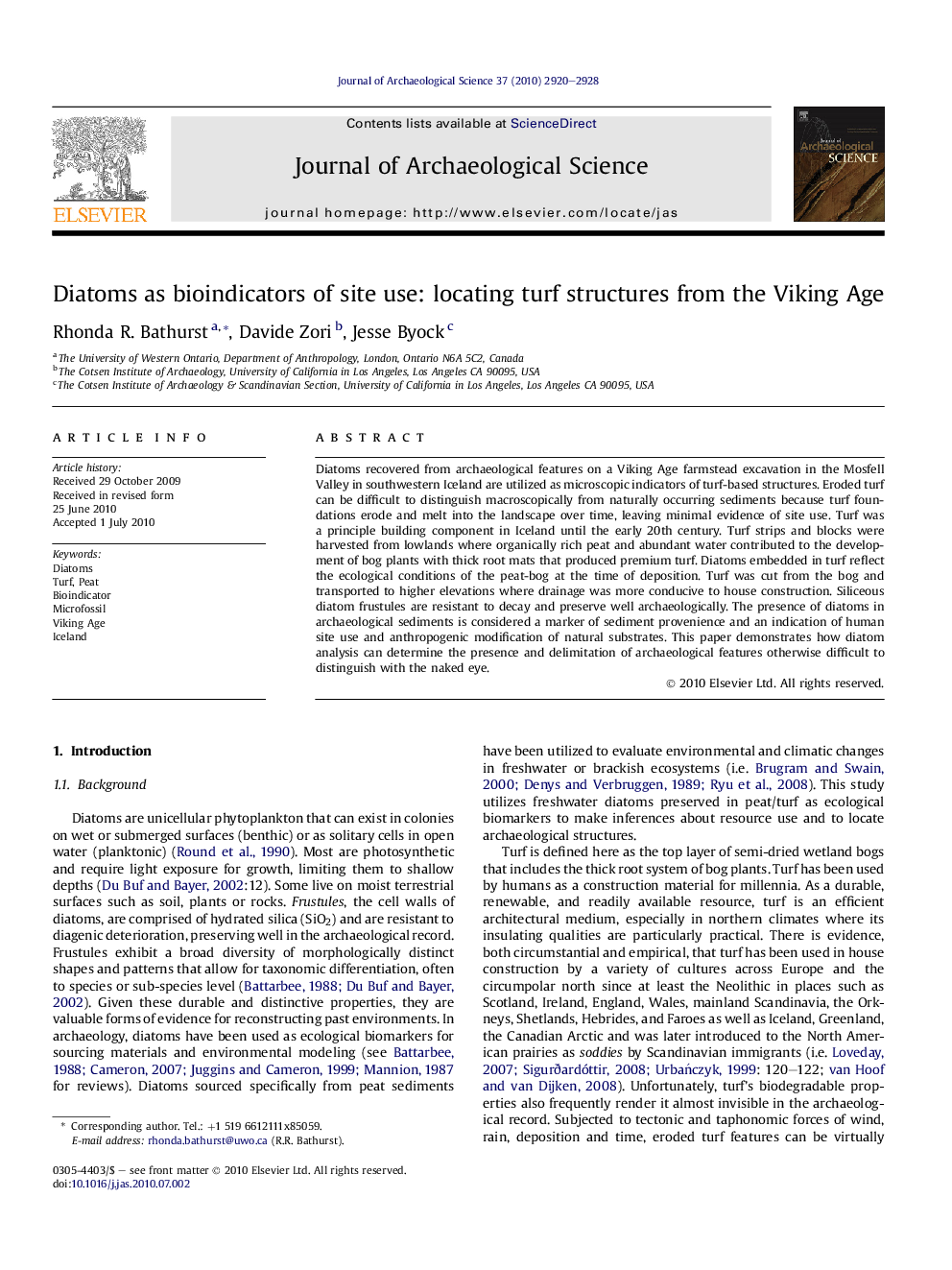| کد مقاله | کد نشریه | سال انتشار | مقاله انگلیسی | نسخه تمام متن |
|---|---|---|---|---|
| 1036488 | 943886 | 2010 | 9 صفحه PDF | دانلود رایگان |

Diatoms recovered from archaeological features on a Viking Age farmstead excavation in the Mosfell Valley in southwestern Iceland are utilized as microscopic indicators of turf-based structures. Eroded turf can be difficult to distinguish macroscopically from naturally occurring sediments because turf foundations erode and melt into the landscape over time, leaving minimal evidence of site use. Turf was a principle building component in Iceland until the early 20th century. Turf strips and blocks were harvested from lowlands where organically rich peat and abundant water contributed to the development of bog plants with thick root mats that produced premium turf. Diatoms embedded in turf reflect the ecological conditions of the peat-bog at the time of deposition. Turf was cut from the bog and transported to higher elevations where drainage was more conducive to house construction. Siliceous diatom frustules are resistant to decay and preserve well archaeologically. The presence of diatoms in archaeological sediments is considered a marker of sediment provenience and an indication of human site use and anthropogenic modification of natural substrates. This paper demonstrates how diatom analysis can determine the presence and delimitation of archaeological features otherwise difficult to distinguish with the naked eye.
Journal: Journal of Archaeological Science - Volume 37, Issue 11, November 2010, Pages 2920–2928